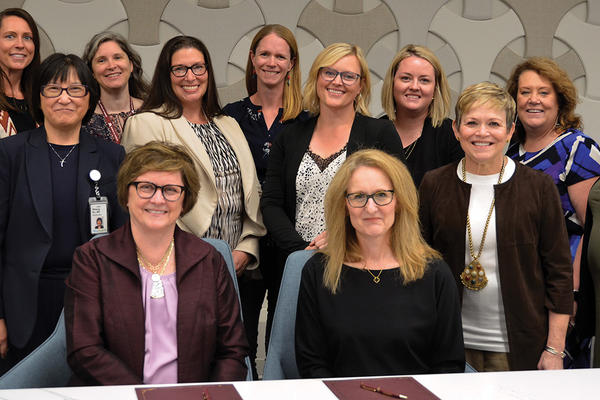Sex trading, homelessness, and food insecurity among cisgender boys
November 13, 2023
Cisgender girls and boys trade sex for things of value at similar rates. However, most research focuses on girls and women, leaving boys understudied and underserved. In a study published in Pediatrics in May, nursing faculty Lauren Martin, PhD, FNAP, and Barbara McMorris, PhD, along with G. Nic Rider, PhD, set out to address research and practice gaps about adolescent boys who trade sex. “There is a real gap in knowledge about boys who trade sex, which leads to stereotypes and misunderstandings,” says Martin. McMorris adds, “That’s why this particular research is so important.”
Their study, Sex Trading Among Adolescent Cisgender Boys, used data from a 2019 statewide survey of Minnesota high school students. The team analyzed information from a group of 32,311 boys in 9th and 11th grades who self-reported that they were male and did not identify as transgender, genderqueer or genderfluid. About 1.2% of cisgender boys in 9th and 11th grades indicated that they had traded sex for money, food, drugs, alcohol, a place to stay or other things.
About 23.3% of cisgender boys who had traded sex also reported experiencing unstable housing in the past year; 18% reported food insecurity in the past month– percentages that were significantly higher than boys who indicated never trading sex. This research also found disproportionate representation among Black and Native+ boys trading sex compared to white, Asian and Latino boys. “This uneven depiction is likely related to structural racism and experiences of racial oppression,” notes McMorris. “Understanding the needs of boys who are trading sex will help us better advocate for expanded clinical supports, social services, and school-based prevention and intervention efforts for these youth,” says Martin.


